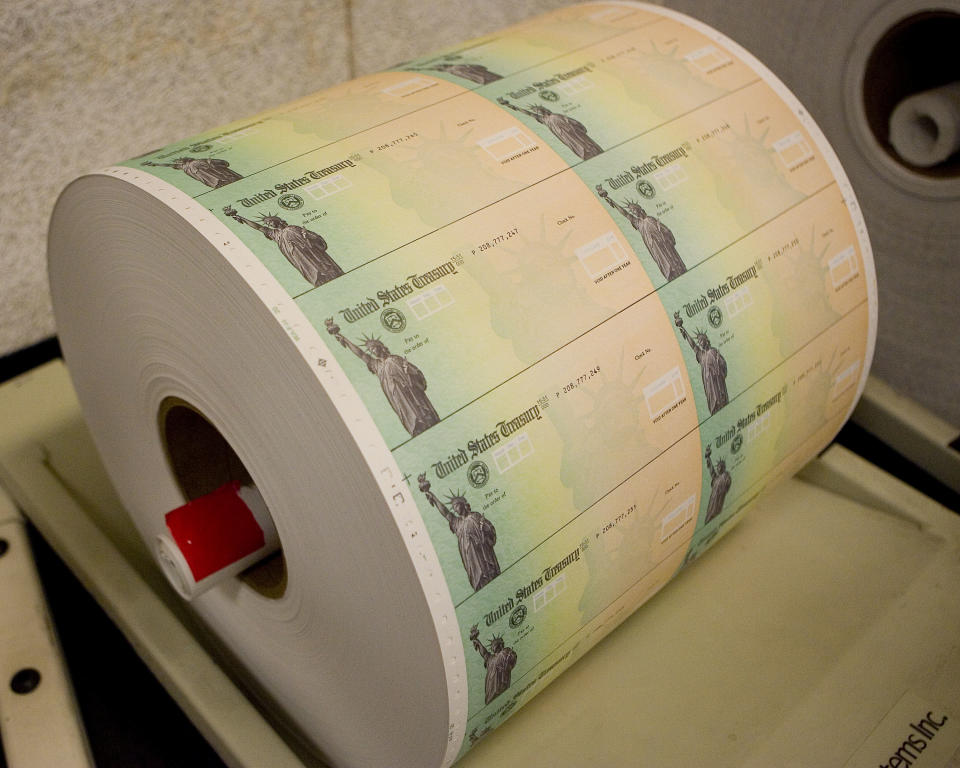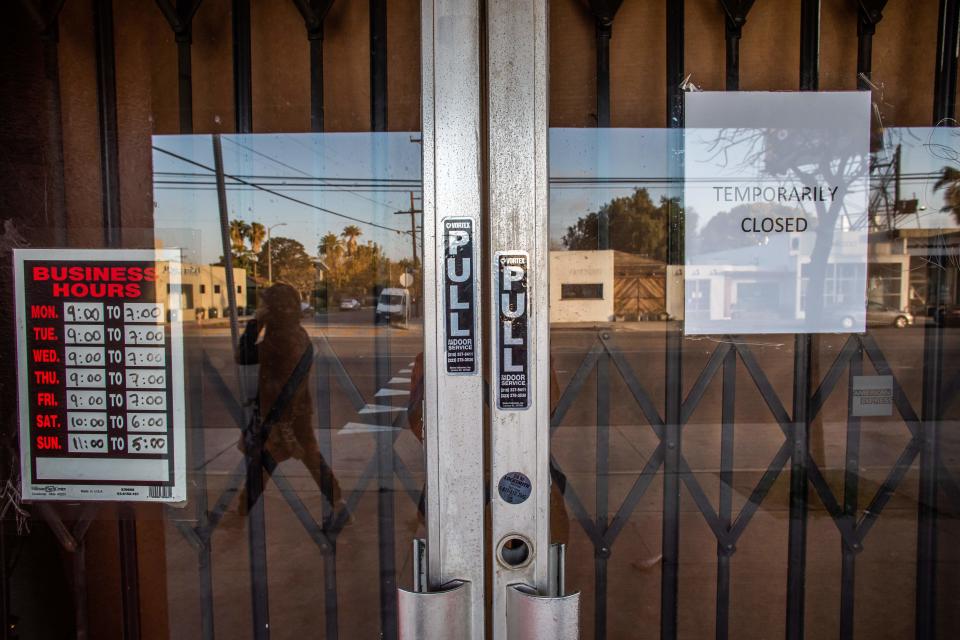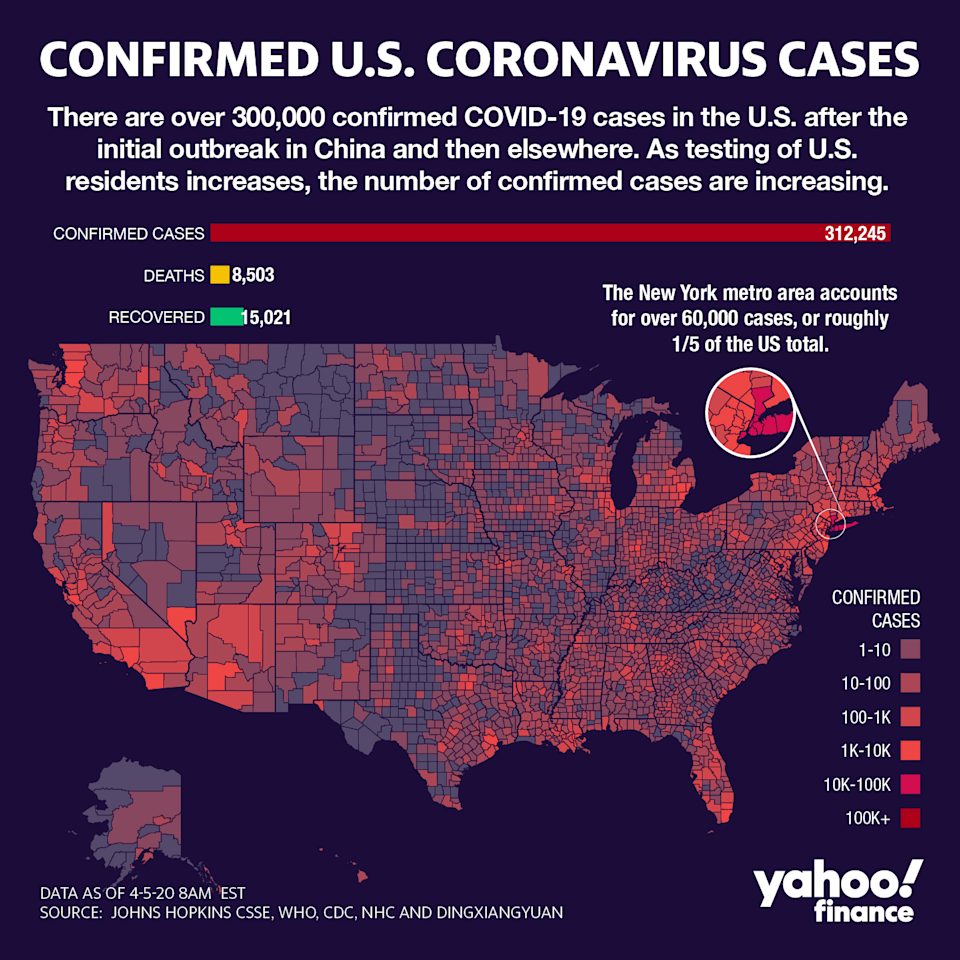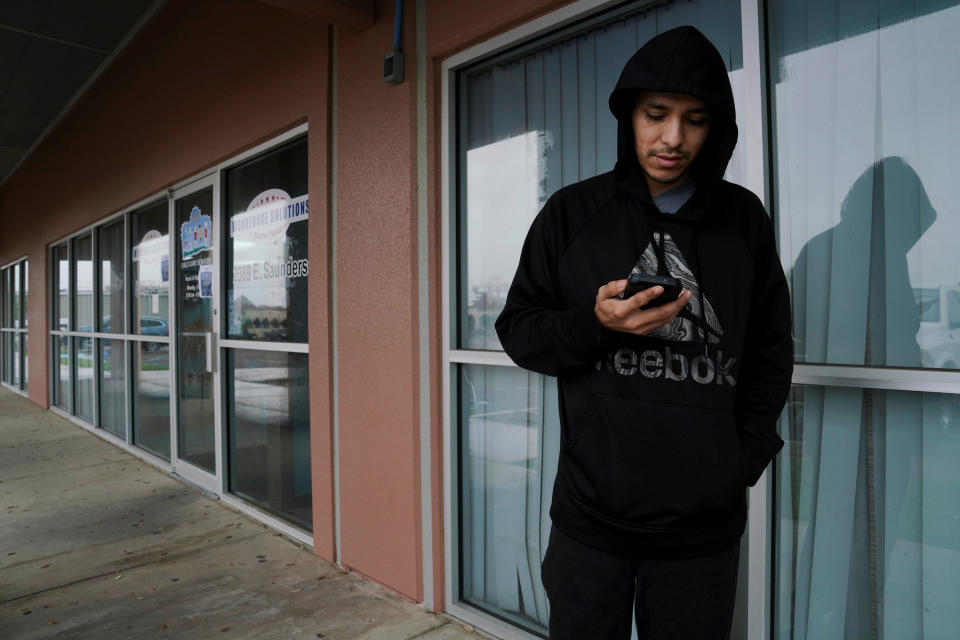Coronavirus stimulus check: Experts give advice on how Americans should use the funds
Direct deposits from the government will begin to hit Americans’ bank accounts in the next few weeks as part of the new $2 trillion coronavirus relief package.
The cash infusion, up to $1,200 (plus an additional $500 per child under 17), is meant to help Americans weather financial setbacks. So what’s the smartest way to use those funds?
“Your best move with those checks depends entirely on your own personal circumstances,” Matt Schulz, chief credit analyst for LendingTree, told Yahoo Money. “If you don't have a job, you need that money to keep the lights on. If you’re doing well financially, it’s a good time to build on a rainy day fund or start one if you don’t have one.”
Read more: Emergency fund: What you need to know to build one

Before the stimulus check arrives
Before you can spend your relief funds, you need to know what needs to be paid first, especially since it will take some time to get that direct deposit. The government anticipates direct deposits to start in mid-April, while mailed checks could take months.
“It’s not whether or not they get the check, it’s what they do in the meantime,” Bruce McClary, spokesman for the National Foundation of Credit Counseling, told Yahoo Money. “They have to make do until they get the check.”
Your spending has likely changed since before the coronavirus, so it’s important to understand your new budget. If you live in a state where most non-essential businesses have been shut down, you probably aren’t spending money on dining out, going to the movies, or travel, said Roger Ma, a certified financial planner and author of “Work Your Money, Not Your Life.”
Read more: Budgeting 101: What it is and how to build one
“That exercise should give you a sense of whether your stimulus check will need to be used for an immediate need or if you can take some time to hold onto it in case this goes on for a while,” he told Yahoo Money.

Americans should also use this time to skim the fat off their finances, according to Robert Leiphart, a certified financial planner at RB Capital Management in Trumbull, Connecticut.
“Cancel any bills or services that are not a bare necessity,” he told Yahoo Money.
Now is the time to be proactive and reach out to everyone you owe to see what kind of special payment arrangements can be made before accounts go into collections, McClary noted. Many lenders, banks, utilities and others are already offering hardship programs for those affected by the coronavirus crisis.
“You can stretch your dollar a little further by having reduced or deferred payments,” McClary said. “Then consider those that are not being flexible. If a utility threatens to shut off service, then it becomes a priority to pay, especially if the service is key to your health and safety.”
Read more: Where to get free music, theater, and more during coronavirus isolation

When the stimulus check arrives
If you have no job: Add it to your emergency savings. When it’s time to spend it, follow this payment hierarchy.
“First and foremost, you should be focused on the things that are life-sustaining like food or medical expenses,” McClary said. “Those should always be the priority.”
If you can’t get them deferred, housing costs should come next, including payments for heating and electricity. If you need to get around, make sure to cover your car payments. But, again, ask the lender for some leeway first.
While it’s never good to carry high-cost debt like credit cards, this may be the time to make only the minimum payment to keep as much cash on hand. First, ask your card issuer if you can delay payments for the next month or two to give you another cushion.
Read more: Coronavirus: Here’s what to do if you can’t pay rent

If you have a job, but no emergency savings: If you don’t need the money right away, but don’t have enough emergency savings — at least three to six months worth of expenses — stick it in the bank and pad the rainy day fund.
If your job is in question: Do the same thing if you anticipate a potential disruption to your income stream — whether a job loss or a reduction in hours — even if you feel financially secure now.
If you have a job, emergency savings, and high debt: If you have a rainy day cushion but also some credit card debt, put some of your stimulus check toward that debt, which can become a problem down the road, said Daniel Trumbower, a financial planner at Halpern Financial.
“High-interest debt compounds quickly and can threaten your financial stability,” he told Yahoo Money. Paying it down or off can put yourself on a more stable path to weather other challenges later.
If you have a job, emergency savings, and are financially secure: You may consider helping others — family members, friends, neighbors, or local businesses — with your stimulus check. Buy others groceries or get takeout from your favorite restaurants to help them stay afloat. Donate to charities that are working to support the response efforts to the outbreak.
Read more: Coronavirus: The best ways to help others in need
“This pandemic is going to affect the least of us the worst,” Melissa Brennan, a certified financial planner in Plano, Texas, told Yahoo Money. “Lots of hourly workers saw their incomes go away practically overnight, but their financial obligations didn’t go away, and their stimulus checks won’t bridge the gap very long.”
Janna is an editor for Yahoo Money and Cashay. Follow her on Twitter @JannaHerron.
Read more:
Taxes 2020: How to pay your tax bill (and what to do if you can't)
How the extended tax deadline affects payments, retirement contributions, and more
Where is my tax refund? This chart shows when you can expect it
Read more personal finance information, news, and tips on Cashay

 money
money 
